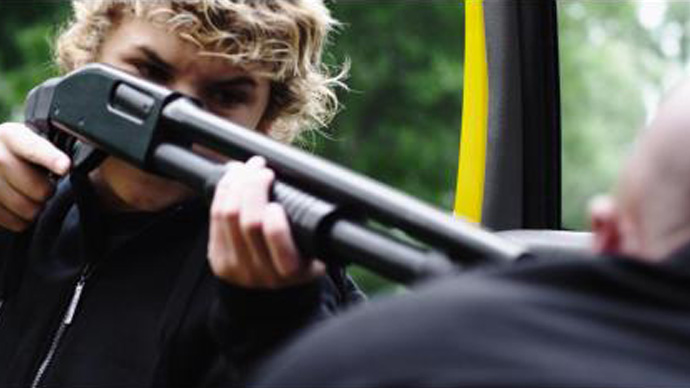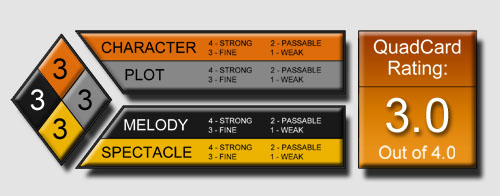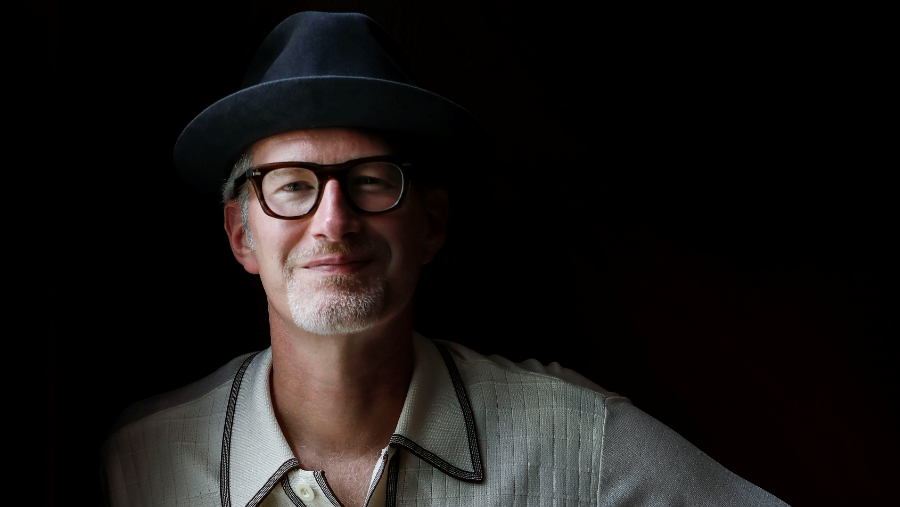
Describing Steven C. Miller’s The Aggression Scale as a violent Home Alone riff feels almost too retro-hip for my liking, but it’s almost impossible not to. The similarities between the two films are clear; pit seemingly defenseless children against brutish home invaders, watch the former embarrass and defeat the latter. But Kevin McAllister didn’t know how to work a pump-action shotgun, and possessed a much cuter propensity for violence. Owen (Ryan Hartwig), his analogue here, favors all manner of sharp objects and potent cocktails of ammonia and bleach. (They both admire the efficacy of a nail through the foot.) The clearer difference, though, lies in pathos– Kevin’s just a self-indulgent spoiled brat, while Owen has deep-rooted emotional and mental issues, through-the-roof intelligence, and a primal, instinctual nature.
But pegging The Aggression Scale as “Home Alone with a body count” sells the movie short– somewhat, at least. Yes, Miller’s film primarily exists to showcase the violent confrontation between Owen and a quartet of ruthless criminals (including Dana Ashbrook, of Twin Peaks fame, and Derek Mears, the man who donned the hockey mask in 2009’s Friday the 13th reboot); yes, their clashes completely revolve around his MacGyverish approach to mayhem. There’s little else that The Aggression Scale brings to that common formula apart from a far more compelling lead, both in terms of how he’s written and how he’s portrayed, and a D.I.Y. low-budget charm, but as it turns out, that’s more than enough for the film to be worth watching.
The set-up here is simple: mob bigwig Bellavance (Ray Wise, also a Twin Peaks veteran) is eager to retrieve a large sum of money someone stole from him, and he sends out a team of thugs with a list of suspects in hand. While Ashbrook and company travel from person to person and coldly gun them down, newlyweds Bill and Maggie move into their new home with their children– Maggie’s daughter Lauren, who never lets a minute pass without reminding her mother and the audience how much she hates this place, and of course Bill’s son, Owen. We can see where all of this is going from roughly a mile away, and before too long the bad guys come a-calling and Owen must call on his propensity for mercilessly inventive brutality to save the day.
Once the young man goes commando and starts booby-trapping the entire cinematic world he and his enemies inhabit, The Aggression Scale immediately and obviously turns into a completely different film from the crime thriller it begins its life as. But that’s not a problem; in fact, Miller deftly stitches the two aspects of his picture together, and the transition never feels more than a little bumpy. Partly this is because we know that the killers and the family will cross paths with each other, and we know the results won’t be pretty; more so it’s because of the quiet work done here by Ryan Hartwig, who commands so much attention when he’s on-screen that he expertly eases his eventual shift into the film’s lethal hero without even having a line of dialogue to utter its entire (and admittedly brief) running time. He’s simply outstanding, to the point where he outclasses just about everyone else in the cast (though that’s frankly a small feat, given how terrible most of the other performances here outside of Ashbrook’s and Wises’s and Mear’s are).
But a great deal of credit must be accorded to Miller, the other silent star of The Aggression Scale . There’s no mistaking where his picture comes from just by virtue of its outward appearance; this is a scruffy, scrappy little movie, one that got made through sheer dedication and passion and without the benefit of a handsome budget. For some (such as myself), that rough-around-the-edges appearance marks one of The Aggression Scale‘s charms. For people with a skewed idea of what “low budget” really means, the absence of slickness that comes with meager funds may serve as a turn-off, and they’re probably not going to be in a big rush to support and consume Miller’s efforts.
They should, though, because if The Aggression Scale suggests anything, it’s that Miller could do great things with increased resources. Miller might not be able to disguise his picture’s shoe-string origins, but he has impressive chops as a filmmaker that genuinely elevate The Aggression Scale into something really exciting. What his film lacks in sophistication, it makes up for in tight pacing, ambition, clever writing, and a downright meticulous sense of visual storytelling that lends The Aggression Scale a considered, deliberate quality of craftsmanship. However one might receive the film based on looks alone, there’s talent driving it forward; artistic talent, not the sort of schmoozing talent that secures finances, and we all know what it is that makes a film more worth watching. Give The Aggression Scale a chance and you might find yourself hoping that someone decides to give Miller more money in the future, too.


